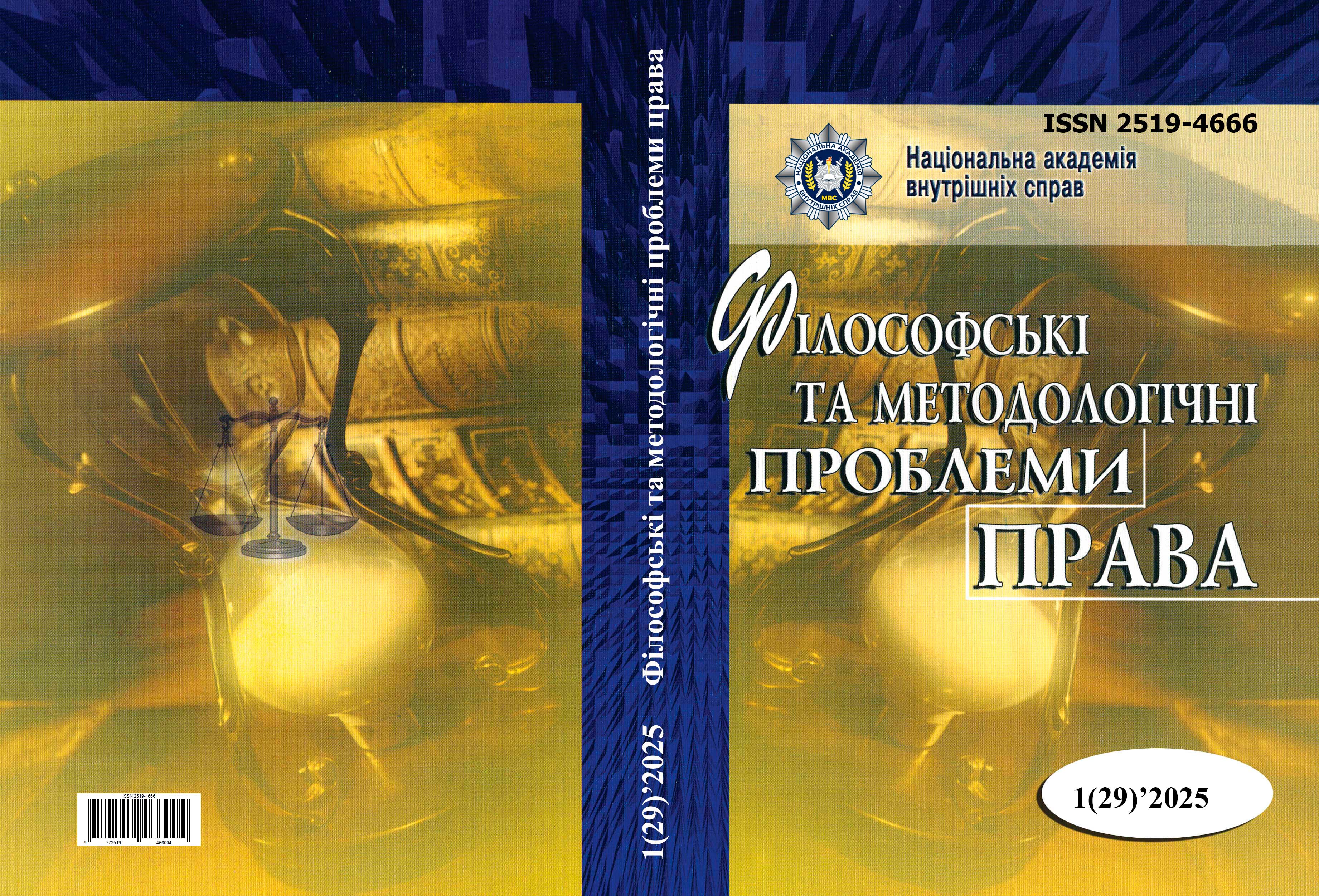Reforming the Legislation on Charitable Organizations in Ukraine and China
Abstract
Abstract. The relevance of the study is due to a certain uncertainty of issues related to the legal regulation of charitable organizations. The purpose of the study is to conduct a comprehensive analysis of the legal regulation of charitable activities in the PRC and Ukraine with a view to using the positive experience for the Ukrainian State. The author analyzes the process of reforming the legislation of the PRC and Ukraine in the field of charity, identifies the shortcomings and positive practices of the countries. The author argues that the process of reforming the legislation of the People’s Republic of China in the field of charitable organizations was long and gradual. Despite numerous positive practices, it has shortcomings. Ukraine can take into account the experience of reforming the Chinese legislation on charitable organizations and use it to improve its own national regulations in the field of charity, in particular, the introduction of social entrepreneurship, which aims not only to make a profit but also to achieve the common good, rating of charitable organizations, and the requirement of openness to the public. As a conclusion, it is noted that the implementation of charity and charitable assistance requires Ukraine to develop and implement modern political, legal, organizational, and financial instruments to support and develop the institution of charity and entities engaged in such activities.The author substantiates the need to distinguish between the forms of charity and proves the need for their legal regulation. In writing the article, the author used general scientific and special legal methods and an integrated approach. The practical significance of the study is that the authors have identified the most appropriate measures to improve the legal regulation of charitable activities in Ukraine and to determine transparent procedures for their implementation, taking into account the positive experience and shortcomings in the legislation of the People’s Republic of China.
Keywords: charitable assistance; volunteering; charitable organizations; charity; legal regulation of charitable activities.
Downloads
References
Bethke, D. (2016). Charity law reform in Hong kong: taming the asian dragon? International Journal of Not-for-Profit Law, 1(18). Retrieved from https://ssrn.com/abstract=2808439
Brennan, M. (2022). Media Confidence Ratings at Record Lows. Site "Gallup". Retrieved from https://news.gallup.com/poll/394817/media-confidence ratings-record-lows.aspx
Brovko, N.I. (2024). Development of public initiatives in Ukraine in the process of European integration. Actual researches of legal and historical science, 64, 47-49. Retrieved from https://rep.btsau.edu.ua/handle/BNAU/12605
Brovko, N.I. (2024). Philosophical and legal analysis of charity. The rule of law, 53, 32-43. DOI: 10.18524/2411-2054.2024.53.300716
Charity. Legal dictionary. Retrieved from https://kodeksy.com.ua/print/dictionary/b/blagodijnitstvo.htm
Connolly, C., & Hyndman, N. (2004). Performance reporting: а comparative study of British and Irish charities. The British Accounting Review, 36(2), 127-154. DOI: 10.1016/J.BAR.2003.10.004
Helmke, G., & Levitsky, S. (2004). Informal Institutions and Comparative Politics: A Research Agenda. Perspectives on Politics, 2(4), 725-740. DOI: 10.1017/s1537592704040472
Holovko, O.V. (2023). Volunteering in Ukraine: historical and legal aspect. Law and security, 2(89),
-18. DOI: 10.32631/pb.2023.2.01
Keulman, K. (1996). Critical Moments in Religious History. Journal of Church and State, 38(4),
-916. DOI: 10.1093/jcs/38.4.915
Kostytskiy, M., Kushakova-Kostytska, N., Brovko, N., Tereshchuk, M., & Arhat, Yа. (2022). The issue of developing legal consciousness of the population in contemporary Ukrainian community (example of rural inhabitants). Amazonia Investiga, 11(52), 142-147. DOI: 10.34069/AI/2022.52.04.15
Lazanska, T.I. (2004). Charity, philanthropy. Encyclopedia of the history of Ukraine (Vol. 2), (pp. 423). Retrieved from http://www.history.org.ua/?termin=Dobrochynnist
Miao, Q., He, Y., & Pan, C. (2024). How Organizational Socialization Tactics Affect Volunteer Outcomes for New Volunteers. Voluntas, 35, 977-993. DOI: 10.1007/s11266-024-00667-2
Scheler, M. (1973). The Nature of Sympath. New Brunswick. Retrieved from https://books.google.com.ua/ books/about/The_nature_of_sympathy.html?id=34Fl6qrpdb0C&redir_esc=y
Stynska, V.V. (2021). Regulatory and legal regulation of charitable activities in Ukraine. Scientific Bulletin of Uzhhorod University, 48, 396-399. DOI: 10.24144/2524-0609.2021.48.396-399
Tsu, Yu-Yue. (1912). The Spirit of Chinese Philanthropy: A Study in Mutual Aid. New York Chichester, West Sussex: Columbia University Press. DOI: 10.7312/tsu-94202
Walk, M., & Peterson, E. (2023). Volunteers as active shapers of their work: the role of job crafting in volunteer satisfaction and organizational identification. Voluntas: international journal of voluntary and nonprofit organizations, 34(2), 289-300. DOI: 10.1007/s11266-022-00462-х
Wang, M., & Li, S. (2019). The development of charitable organizations in China since reform and opening-up and a new layout for state-society relations. In The Palgrave Handbook of Local Governance in Contemporary China (pp. 245-265). Palgrave Macmillan, Singapore. DOI: 10.1007/978-981-13-2799-5_12
Xiaoming, F. (2015). China's charitable foundations: Development and policy-related issues. Chinese Economy, 48(2), 130-154 DOI: 10.1080/10971475.2014.993221
Zaporozhchenko, O. (2020). Social and psychological aspects of the phenomenon of charity. Charity in the modern world: origins, problems, prospects: Collection of scientific papers (pp. 23-27). Izmail. Retrieved from http://idgu.edu.ua/wp-content/uploads/2018/01/blahodijnist.pdf
Zavydniak, I.O., Tsymbal, P.V., & Omelchuk, L.V. (2019). Charitable organizations in Ukraine: administrative and legal status and ways of its reform. Irpin: Un-t DFS Ukrainy.
Abstract views: 93 PDF Downloads: 119
Copyright (c) 2025 Philosophical and Methodological Problems of Law

This work is licensed under a Creative Commons Attribution-NonCommercial-NoDerivatives 4.0 International License.
- Authors reserve the right to authorship of their own work and transfer to the magazine the right of the first publication of this work under the terms of the Creative Commons Attribution License, which allows other persons to freely distribute published work with mandatory reference to authors of the original work and the first publication of an article in this magazine.
- Authors have the right to enter into separate additional agreements on non-exclusive dissemination of the work in the form in which it was published in the journal (for example, to post an article in the institution's repository or to publish as part of a monograph), provided that the link to the first publication of the work in this journal is maintained.
- The journal's policy allows and encourages the posting of articles by authors on the Internet (for example, in electronic storehouses of institutions or on personal websites), both before the submission of this manuscript to the editorial office and during its editorial processing, as this contributes to the creation of a productive scientific discussion and positively affects the efficiency and dynamics of citing the published work.




